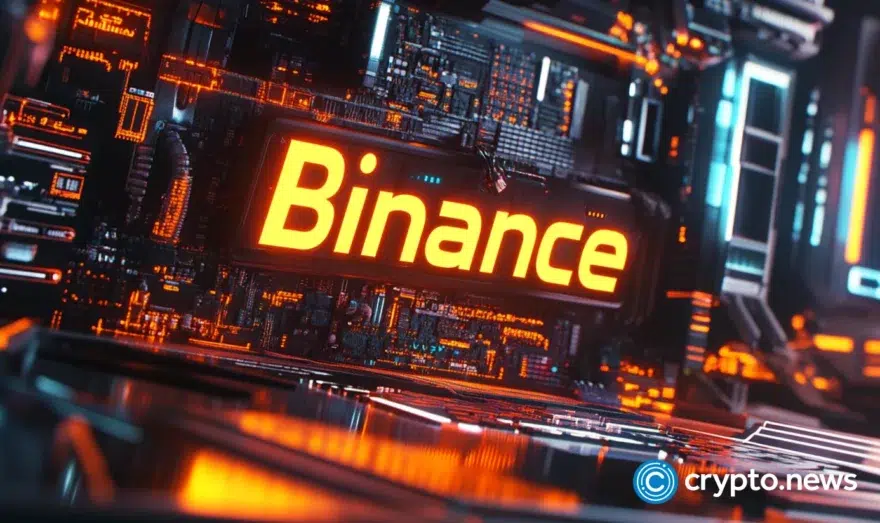Paying Off Student Loans With Crypto? Here’s How It Can Work

If you are a student who holds crypto-assets and are looking for ways to repay your college loan, you may want to consider DeFi loans. Read on to learn how you can pay off your student debt using DeFi loans.
Table of Contents
What Is a DeFi Loan?
DeFi (decentralized finance) refers to an ecosystem of blockchain-based applications that provide a range of financial services similar to traditional financial institutions. Decentralized finance applications are deployed as smart contacts, automating and executing financial transactions. This is unlike traditional financial services that rely on centralized third parties to manage them.
A DeFi loan can be described in the context of DeFi lending. DeFi lending allows you to loan or borrow money in a decentralized and seamless way while retaining full custody over your funds.
DeFi loans allow you to borrow money and use your crypto assets as collateral. In principle, the collateral you offer must be at least equal to or more to the value of the loan you want to take out. Smart contracts are responsible for ensuring a DeFi loan remains over-collateralized according to a percentage demanded by the DeFi lending protocol.
For instance, the DeFi lending protocol MakerDAO requires borrowers to collateralize their loans at a minimum of 150% of the loan value. This means if you are looking to borrow 100 Dai on MakerDAO, you need to collateralize your loan with a minimum of $150 worth of ETH.
Most DeFi lending protocols incentivize borrowers by rewarding them with governance tokens when taking out a loan. This is a popular strategy used by DeFi protocols to attract liquidity and reward users contributing to the ecosystem.
DeFi loans are useful to investors as they can lend their crypto assets to borrowers to earn money. And smart contracts are automatically distributing digital assets to borrowers. This way, a borrower can borrow digital assets on a peer-to-peer basis, while a lender can lock them away in lending pools to earn interest.
Why Are DeFi Loans an Option To Pay off Student Loan Debt?
DeFi lending enables you to take out a loan against your crypto holdings, and use it to pay off your student loan. Because you don’t have to sell your crypto assets to generate money, you can avoid paying capital gains tax on sold crypto assets since your crypto tokens will be used as debt collateral for a money loan.
Moreover, you can also invest your tokens, typically stablecoins, into lending pools to earn interest. The interest income you earn can then be converted to fiat currency at an opportune time and used to cover your student loan.
DeFi loans offer open and permissionless access, which allows anyone with a crypto wallet to borrow or lend money through DeFi lending protocols. Unlike traditional lenders, who need you to meet certain requirements (like creditworthiness, income stream, age, etc.) to qualify for a loan, you can access DeFi loans from anywhere without having to submit any KYC or other personal information about yourself.
Therefore, settling your student debt may only require you to have a crypto wallet and tokens you have invested in. DeFi loans also give you self-custody over your assets. This way, you have greater control over your personal assets compared to traditional debt with all its conditions and rules. Additionally, DeFi lending protocols are much faster when distributing loans to borrowers, in stark contrast to traditional financial institutions and their layers of red tape.
How Can You Pay Off Your Student Loans With a DeFi Loan?
Let us assume you wish to settle a $12,000 student loan debt. Let us also assume you have been active in the crypto industry for some time, and you have managed to accrue $20,000 worth of ETH over the years.
You could decide to sell $12,000 worth of crypto-assets and settle the entire debt in one go. However, while this may appear as the right move, it is not without its downsides.
By selling 60% of your crypto portfolio, you have effectively reduced your position in the crypto market. Consequently, were crypto market prices to turn bullish again, your earnings from crypto would be significantly diminished. Also, there is a capital gain tax to be paid whenever you sell your crypto holdings for fiat money.
Thanks to DeFi, you don’t have to go down that path. You have another option, which is to deposit your $20,000 worth of ETH in a DeFi lending protocol as collateral and borrow a loan worth $12,000 in stablecoins against it. You can then go on to convert the stablecoins into fiat currency to settle the outstanding debt. Because your loan is probably denominated in the same currency your stablecoins are, you don’t have to deal with any price volatility.
Since there is no fixed repayment period, you can take your time to repay the DeFi loan as long as your collateral remains valuable enough to avoid the risk of liquidation. This is certainly something you have to keep monitoring.
Because crypto assets are volatile, you have to make sure to stay over-collateralized enough. Should you come close to the liquidation level, you can either pay down some of your loans or add more crypto assets to ameliorate your collateral position.
Still, you now have the freedom to repay your debt at your own pace. Equally important is that you can sell any governance tokens or interest earned to settle a fraction of the debt. Interestingly, should the price of the crypto asset held as collateral rise, the size of the crypto loan will technically reduce.
The Risks of Paying off College Debt With a Crypto Loan
When it comes to paying off your college debt with a DeFi loan, there are certain risks you need to be aware of. They include:
Variable Rates
DeFi lending protocols typically offer variable rates as the APR oscillates depending on the supply and demand of the crypto assets. In other words, DeFi loans become costly when the APR increases, which is the result of a lack of lenders.
Liquidation
DeFi lending protocols have liquidation thresholds when passed, the collateral is sold off by the protocol to cover a borrower’s debt. Using the example of MakerDAO, given that the minimum collateralization ratio is 150% and your collateral is $150 worth of ETH for a loan of $100 in Dai, should the price of ETH decline below $150, you will be subject to a liquidation penalty of 13%.
As mentioned above, at this point, you can opt to pay back some of your loan in Dai or deposit more collateral to avoid the penalty. If you fail to complete any of the two actions and the price of ETH continues to slip, the protocol will continuously liquidate the collateral to repay the debt.
Smart Contract Vulnerabilities
Errors in the underlying smart contract codes have compromised the safety of users’ crypto assets. System bugs have in the past exposed DeFi lending protocols to security risks and breaches, which can result in a complete loss of deposited funds.
FAQs
Can You Use Crypto to Pay Off Debt?
Yes, it’s possible. You could take out a crypto-backed cash loan to pay off your student debt using your crypto holdings as loan collateral. Alternatively, you could sell some of your crypto investments (if they have performed well) to pay off any debt you have.
Can You Lose Money Lending Crypto?
Yes. Regardless of whether you are lending crypto assets using a centralized or decentralized lending platform, there is a chance that you could lose all your money. The risks vary depending on what type of platform you are using, so make sure you are aware of all the risks that crypto lending entails before putting your money to work in the crypto lending markets.
How Do I Pay Back a Crypto-Backed Loan?
Paying back a cryptocurrency-backed loan works in essentially the same way as paying back a traditional loan. You can make early repayments or pay the borrowed lump sum at the end. And where applicable, don’t forget the interest payments. In DeFi, most of these repayments are automated using smart contracts.















